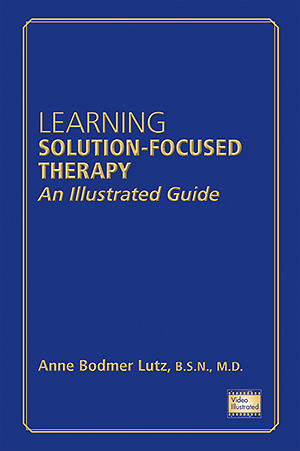Sections
Excerpt
Treating people who suffer from addiction is a challenging and rewarding endeavor. Solution-focused therapy is a very beneficial skill to incorporate into addiction treatment and has been written about extensively(Anderson and Goolishian 1991; Berg 1996; Berg and Miller 1992; Berg and Shafer 2004; de Shazer and Isebaert 2004; McCollum and Trepper 2001; Pichot 2001; Pichot and Smock 2009; Yeager and Gregoire 2005). Many people who have this disease, especially those who are adolescents, are externally motivated (mandated) into treatment. Often people with addiction suffer from myriad other problems, including co-occurring disorders that make dual diagnosis the norm rather than the exception(Minkoff 2001). Patients with addiction are often ambivalent about stopping their substance use, and their very important people (VIPs) are exhausted from having been subjected to the pernicious effects of this malignant disease. Both patients and their VIPs are in extreme need of comfort, support, and help.
Access content
To read the fulltext, please use one of the options below to sign in or purchase access.- Personal login
- Institutional Login
- Sign in via OpenAthens
- Register for access
-
Please login/register if you wish to pair your device and check access availability.
Not a subscriber?
PsychiatryOnline subscription options offer access to the DSM-5 library, books, journals, CME, and patient resources. This all-in-one virtual library provides psychiatrists and mental health professionals with key resources for diagnosis, treatment, research, and professional development.
Need more help? PsychiatryOnline Customer Service may be reached by emailing [email protected] or by calling 800-368-5777 (in the U.S.) or 703-907-7322 (outside the U.S.).



